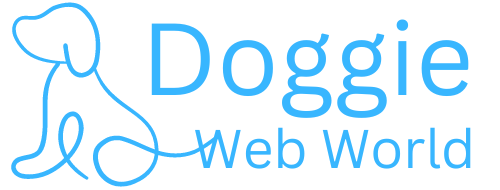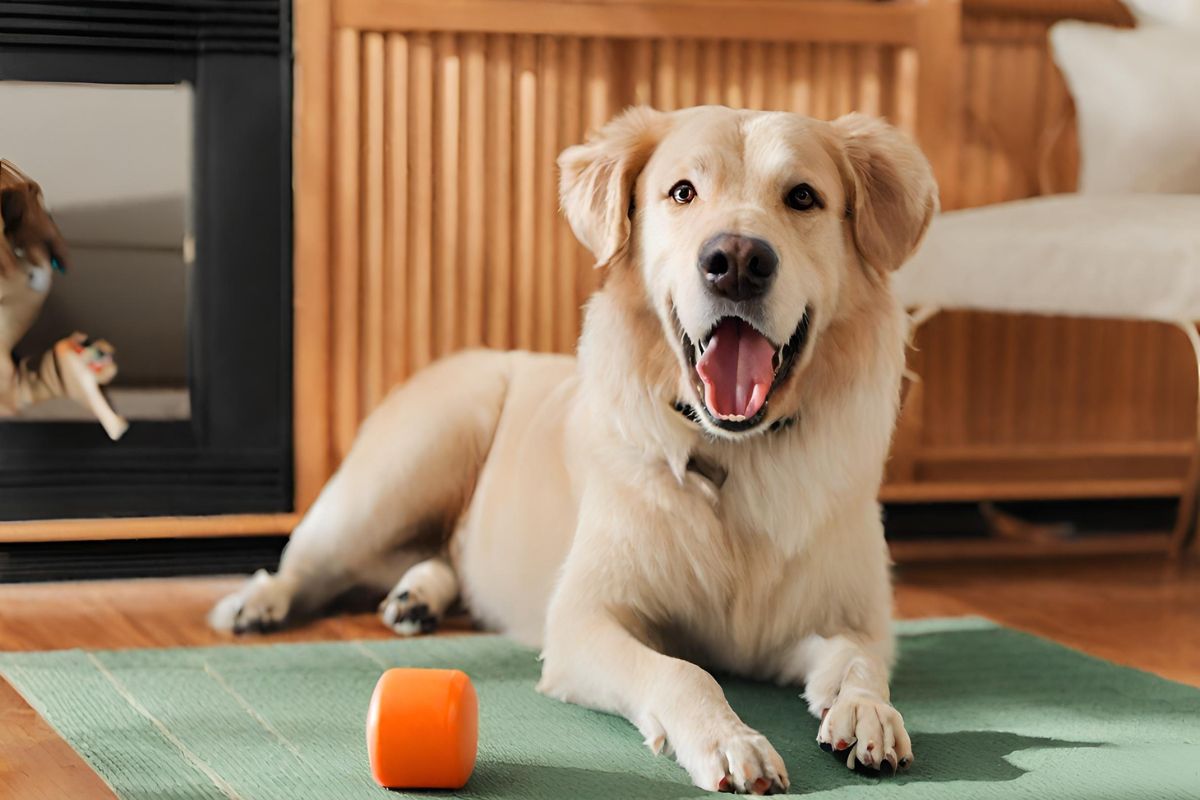Have you ever asked yourself: why is my dog so hyper at night? Most dog owners can attest to the fact that their canine companions have an added measure of energy after sunset. But why does this happen? And more importantly, how is it resolved? Today, we will explore why dogs and puppies are hyper at night and five easy-to-implement solutions.

Research On Hyperactivity In Dogs
When canine hyperactivity is excessive, many dog owners question if ADD (attention deficit disorder)or ADHD (attention deficit hyperactivity disorder) can be expressed in dogs.
Research indicates both genetic factors (such as breed) and non-genetic factors (socialization or physical activity) can contribute to ADHD-like behavior in many dogs. Many of these reasons indicate more external factors than neurological processes.
This is good news for dog owners with hyper-furbabies! In most cases, this behavior can be gradually changed or eliminated. Often, this type of hyperactivity occurs in the twilight and nighttime hours. However, hyperactivity can be curbed with adjustments in daytime routines and minor tweaks to nighttime habits.
Why Is My Dog So Hyper At Night?
There can be many different reasons why dogs may experience hyperactivity at night, depending upon their breed, age, and activity level. Along with that, dogs may be more active at night because of their daytime routine. Some of the most common reasons for nighttime hyperactivity in dogs include:
1. Unexpended Physical or Mental Energy
Dogs, like people, go through growth spurts during their development years. Many dogs experience physical or mental energy spikes during these times and need more exercise, challenging play, or brain-boosting activities in order to expend the extra energy.
These increases in growth tend to occur between 6 to 8 months of age for small to medium-breed dogs and 8 to 10 months for larger-breed dogs. By 18 months, most dogs have reached the approximate mature size.
2. Need for Attention
If a dog does not receive the right amount of attention they need on a regular basis, they could turn to more extreme measure to get it.
For this reason, it is important to ensure that puppies and adult dogs get regular positive affection, attention, and affirmation from their family. In other words, show your dog plenty of love!

3. Interrupted Sleep Cycles
Dogs are creatures of habit. They enjoy the consistency of knowing what their day will be like, particularly when it comes to the main points of the day: eating, playing, and sleeping.
Interrupted sleep cycles or rhythms could contribute to excessive hyperactivity at night because your dog’s daily routine is out of sync.
4. Teething Pain
Especially in puppies, teething pain could contribute to hyperactivity at night. Teething pain tends to increase at nighttime, particularly if a puppy is trying to cut new teeth.
This discomfort could lead to restless sleep, nipping, or unwanted chewing. Here are other teething symptoms to look for in your growing pup.
5. Excessive Exhaustion
Situations like teething pain or interrupted sleep cycles mentioned above could also lead to excessive exhaustion in pets. Many dog owners rarely consider exhaustion to be an answer to their constant question: why is my dog so hyper at night?
Dogs who are out of their routines for any of the reasons above tend to end up in a state of exhaustion. In many dogs, being overly exhausted is expressed as hyperactivity.
6. Separation Anxiety
Another reason for hyperactivity in dogs during the night could be their underlying separation anxiety and the unease they feel when left alone. This anxiety can manifest as increased restlessness, pacing, and excessive barking as the dog attempts to cope with the stress of being separated from their owner.
If your dog seems to be missing you during night hours, consider moving their bed or kennel closer to your own sleeping area.
7. Unbalanced Diet
Hyperactivity in your dog could also be occurring due to an unbalanced diet. While it is good to feed your dog certain pet-safe foods to ensure they are getting adequate vitamins and minerals.
It is also key to be sure that your dog is eating a high-quality, well-balanced dog food like Nom Nom that gives them the essential protein, carbohydrate, and fat substances they need for healthy growth and development.

5 Easy Solutions for Dogs That Are Hyper at Night
Here are some simple solutions for many of these common reasons for hyperactivity in dogs at night:
#1. Implement a regular bedtime routine and stick to it.
Create a simple and stable routine for your canine friend, and try your best to stick to it. The best way to do this is to allow your dog to follow your regular routine. By doing this, your dog will learn to recognize the consistency of their day and nighttime rhythm.
For example, your dog may recognize that you take them outside first thing in the morning, followed by getting fed breakfast. They may also realize that after you put your child to bed, they know it is time to head to their kennel for the night.
The more your dog walks through these daily steps week after week, the better they will become at tempering their energy level at night.
#2. Include more daytime physical and mental stimulation.
Another great way to ease your dog’s energy level at nighttime is to ensure they burn more energy during the day. Many pet owners include a daily walk or jog with their dog. Other owners take their four-legged friend to a dog park or play extra-long games of fetch in the backyard.
Training your dog on simple new commands can also be a way to keep them interested and mentally stimulated. Dogs also see this extra attention from their owner as loving affection.

#3. Make chew toys and stimulating dog treat puzzles accessible.
Investing in different types of chew toys for your puppy or adult dog can also be a solution to nighttime hyperactivity. Chew toys provide counter pressure to the gums of teething pups and keep adult dogs’ teeth and gums healthy.
Dog treat puzzles, interactive dog toys or slow feeder bowls that create extra challenges for your dog can also be a way to keep your furbaby mentally stimulated and busy during the day. Many of these puzzles help your dog slow down when eating, which can also help them stay healthier and fit for years to come.
#4. Reevaluate your dog’s diet and nutrient intake.
If you are concerned that your dog is receiving an inadequate balance nutrients, be sure to visit your vet. They can help you reevaluate the amount of vitamins and supplements your dog should be eating daily and recommend the best food to meet that goal.
#5. Consider giving your dog a companion.
If you are away from your dog for good portions of the day on a regular basis, you could consider finding a companion for your pup. Dogs have a high capacity for experiencing loneliness, and having another dog with them throughout the day could be just what is needed to keep them healthy, happy, and engaged for the long haul.
You may also like: Should You Get a Second Pet to Keep Your Dog Company?
Why Is My Puppy So Hyper At Night?
Puppies have an even greater likelihood of expressing hyperactive behavior at nighttime. As their development progression continues, it is common for puppies to begin to calm between the 12 and 18-month mark.
However, some dog breeds are known for their high energy levels or intelligence, such as sporting and herding breeds such as German Shepherds, Collies, Spaniels, and Labs & Retrievers.
These types of dogs, among other active breeds, will require more exercise and engagement in the puppy stage so that pent-up energy doesn’t turn into destructive behavior.
Providing regular daily exercise and penciling in regular playtime with your puppy pooch will expend that extra energy before bedtime. Along with that, puppies can often have teething pain. Keeping lots of chew toys around for regular use can help provide that much-needed counter pressure on your puppy’s erupting teeth and keep play nipping and biting at bay.
Frequently Asked Questions About Canine Hyperactivity:
Let’s finish off with a few common questions about dogs and nighttime hyperactivity.
When should I see a vet about my dog’s hyperactivity?
It is always a good idea to talk with your vet if you have any concerns about your dog’s development or health. When it comes to hyperactivity in dogs, it is wise to seek professional help when the hyperactivity could become disruptive or dangerous to your dog or those living in your household, especially if biting is involved.
Are there foods that can contribute to my dog’s hyperactivity?
Foods that are high in sugar content could contribute to hyperactivity. For this reason, it is important to ensure that your dog doesn’t overeat dog-safe fruits or homemade fruit-infused treats.
Should I respond to my dog’s playfulness at night or try to calm them?
The best way to respond to a dog or pup’s playfulness at night is through providing attention and affection. Your dog needs to learn that nighttime is for calm sleeping. One way to prepare for this time is to offer extra petting, belly rubs, or scratches behind the ears to ensure that your pup feels loved but cued into the need to be calm in the evening hours.
What is the best type of exercise for my dog?
The best type of exercise for dogs is going on regular walks. For younger dogs or breeds that are naturally more energetic, jogs and runs can also be beneficial. Swimming or types of hydrotherapy can also be a fantastic exercise for many dogs and puppies.
Conclusion: Why Is My Dog So Hyper At Night?
Like humans, dogs need purposeful and engaging daytime routines to have a regular restful night’s sleep. Some of the best ways to keep your dog active during the day and sleep at night are to provide daily physical exercise, mental stimulation, and flexible but reliable daytime and nighttime routines.
Let us know how you keep your dog or puppy active during the day and calm at nighttime. Join our community of dog lovers today and stay up-to-date on the newest tips, tricks, treats, and dog owner insights.


